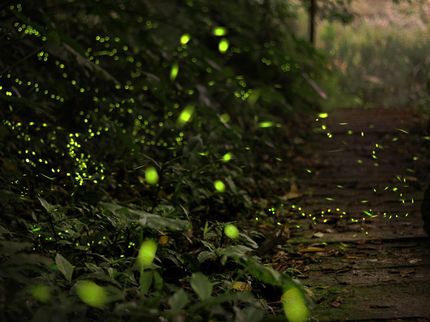Does glyphosate cause cancer?
Expert group to address diverging assessments within the WHO
Advertisement
Following a review of all available studies, glyphosate, an active substance used in pesticides, has been assessed as non-carcinogenic by the competent national, European and other international institutions for health assessment including the WHO/FAO Joint Meeting on Pesticide Residues (JMPR).
At a meeting of the International Agency for Research on Cancer (IARC) of the World Health Organization (WHO) in March 2015 in Lyon, the participating experts classified glyphosate as a carcinogenic substance in Group 2A (“probably carcinogenic to humans”), based on “limited evidence in humans” and “sufficient evidence in animals”. This classification was published in a short report in the "Lancet" journal on 20 March 2015. As Germany is the “Rapporteur Member State” in the European Union (EU) for the active substance glyphosate, the Federal Institute for Risk Assessment (BfR) is issuing its comments on this classification by IARC based on the published short report.
The BfR will perform a thorough review of the classification issued by IARC once the monograph becomes available. According to an IARC notification of 29 May 2015, the scheduled publication date has been brought forward to July 2015. As neither the BfR nor any of the other assessment authorities worldwide currently have access to this report, it is not yet possible to comprehensively assess the reasons given for the conclusions drawn by IARC.
The WHO recently created an “ad hoc expert task force“ to consider possible reasons for the different assessments of the data by IARC and the JMPR. The Taskforce should report back to JMPR in September 2015 for further discussion and action. This process is known as a scientific divergence procedure within the WHO.
17 experts from 11 countries met at the International Agency for Research on Cancer (IARC; Lyon, France) in March 2015 in order to assess the carcinogenic or potentially carcinogenic effect of four organophosphates and glyphosate, all of which are classified as neither carcinogenic nor mutagenic by the competent European institutions.
The classification of glyphosate as "carcinogenic in Group 2A" (probably carcinogenic to humans) was published in the 20 March 2015 issue of the "Lancet" journal. In the view of the BfR, it is not possible based an the short “Lancet” article” to finally peer-review the decision of IARC, as the final IARC monograph in which more detailed reasons are given for the decision is not yet available.
The new IARC classification on carcinogenicity is based firstly on indications of “limited evidence in humans”. This limited evidence is derived from epidemiological studies from the USA, Canada and Sweden. This was not confirmed in a very large cohort of the also cited "Agricultural Health Study" or in other studies. The current report of the BfR to the EU is based on the evaluation of over 30 epidemiological studies. As IARC also states, the overall assessment of the BfR also showed limited evidence for a relationship between exposure to glyphosate and an increased risk of non-Hodgkin lymphoma or other types of cancer. IARC points to findings from studies based on animal experiments, most of which were commissioned by industry, as sufficient evidence for the carcinogenic effect of glyphosate.
These studies were also considered in the glyphosate assessments of the BfR, the EU institutions and, particularily the Joint Meeting on Pesticide Residues (JMPR) of the FAO/WHO responsible for the assessment of active substances in pesticides. This evaluation of is also in line with the opinions of other assessment authorities, such as those in the USA, Canada and Australia. These bodies came to the overall conclusion that glyphosate does not pose any carcinogenic risk to humans. The BfR is meanwhile aware that only a small number of the eleven long-term studies on rats and mice that were assessed as valid by the BfR were available to IARC.
Moreover, the claim made in one study that a highly concentrated, skin-irritating formulation containing the active substance promotes skin tumours was not considered to be evidence for the carcinogenic properties of glyphosate by the institutions in the EU.
It is not possible to fully comprehend the indications for a genotoxic potential of glyphosate based on the short report published by IARC, in particular also due to the fact that the assessment included studies using different glyphosate containing plant protection products that are not specified in any detail.
The glyphosate assessment of the BfR is transparent and was subject to both a peer review by the competent authorities of the other EU Member States and a public consultation procedure. An expert discussion of the EU chaired by the European Food Safety Authority (EFSA) took place in February 2015, in other words prior to the IARC classification. The meeting discussed the BfR assessment. Following the expert meeting, the BfR revised the assessment report once again and forwarded it to EFSA.




























































